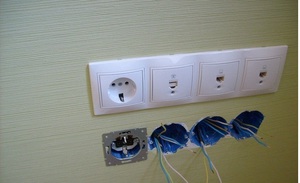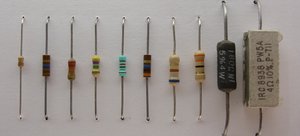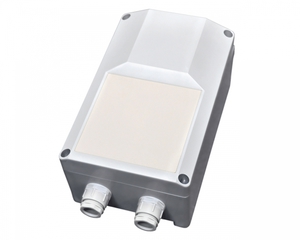Do-it-yourself antenna for a music center
It would seem, which could be easier, than an antenna for a conventional music center? It is easy to use: just turn on the device, catch the desired radio stations and enjoy your favorite music. At first glance, it is so, but, as is often the case, there is also the other side of the coin. Let's try to understand the features of FM-receiving devices and find out, why sometimes it is better to make an antenna with your own hands.
What are the antennas?
In the case of regular antennas for boom boxes and music centers, everything is more or less clear. Most often, these are ordinary folding metal rod retractable structures. In rare cases, when the regular antenna fails, the possibility of using additional signal amplifiers is provided.
so, there are directional and non-directional antennas. Conventionally, they can be divided into:
- Disk (a familiar plate, which can often be seen in private homes, usually, such devices catch satellite broadcasting).
- Rod-shaped (pin), rounded type (ordinary rod, which was given the shape of a circle) and straight lines.
- Wired (most often it is a flexible wire, which can be given any shape and fixed in such a position).
The shapes and sizes of antennas are not limited, the most daring solutions can be found on sale, but the sound quality depends not only on that, what they look like, but also from the characteristics of the music center itself. Not every microsystem will be able to fully reveal the capabilities of the receiving antenna, and this is often the reason, according to which many prefer to experiment with these devices.
Let's dwell on that in more detail, how you can improve the radio signal with your own hands, without resorting to financial investments.
Homemade antenna
Anyone can do it, for this we will need some simple tools, which are in every home:
- A piece of copper wire.
- An ordinary kitchen knife.
- Pliers.
Note, that far from all regions of our country, the fm signal stably covers the entire territory. In some remote locations, the usual built-in antenna of the music center is not enough. In this case, device owners begin to try to strengthen the signal on their own. Most often you can see, like a regular fm antenna wrapped with wire. In other cases, this wire is led out the window (example, in an open apartment), hoping, that it will somehow strengthen the signal. Really, often such practice helps, and the radio still manages to be caught.
so, let's analyze it in more detail, how to make such an amplifier of a standard antenna with your own hands. This is done in stages:
- Take a piece of copper wire.
- Measure the required length and cut with pliers or nippers.
- Now peel off the cut piece of wire with a regular knife.
- Next, you should securely wind the cleaned wire to the existing antenna and try to catch the signal.
If significant improvements did not occur, then it is worth paying attention to the back side of the music center. In the region, where the sockets for the plugs are located, there is often a so-called input for additional antennas. Some manage to amplify the signal, inserting a wire into this slot, but it is worth noting, that such practice may lead to unstable operation of the device as a whole, and sometimes to breakdowns. In addition, the effectiveness of such a method is very doubtful.
У разі якщо посилення пристроєм дротяного типу не допомогло, можна спробувати зібрати стрижневу антену. Вона є остронаправленной, до того ж більш стійкою до міських перешкод. Найчастіше її роблять з уже наявною старої телевізійної антени з урахуванням того, що деякі частоти телемовлення змістилися або зовсім перейшли у онлайн або супутникову трансляцію.
Спрямована штирьова (стрижнева) антена складається з силового елемента (стріли), двох пасивних директорів, петлевого вібратора і рефлектора. Її розмір прямо залежить від діапазону, у якому відбувається прийом сигналу.
Для того щоб зробити її своїми руками, necessary:
- Закріпити силову конструкцію з зовнішньої сторони будівлі.
- Увіткнути провід у відповідне гніздо музичного центру (для його виготовлення знадобиться штекер під відповідне гніздо і вміння працювати з паяльником).
- Провести пошук радіостанцій.
Of course, є варіанти саморобних антен з більш складним алгоритмом виготовлення, але для їх складання потрібно набагато більше навичок і часу. Дротяна і штирові антени – це найбільш прості і доступні будь-якому користувачеві варіанти, if, коли необхідно поліпшити сигнал підручними засобами.
Specifics
Don't forget, що сигнал має властивість погіршуватись, а іноді і зовсім пропадати в нічний час, а також в залежності від погодних умов. Example, в дощ, снігопад або сильний вітер. Truth, It should be noted, що у випадку, якщо сигнал є, штирьова антена забезпечить його якісну передачу. Besides, не всі музичні центри здатні апаратно покращувати прийом сигналу. Особливо така проблема спостерігається у недорогих моделей, де незалежно від того, яка антена підключена до системи, будь-яких змін у рівні прийому сигналу не спостерігається.
In rare cases (в якості експерименту) користувачі намагаються домогтися поліпшення прийому, встромивши штекер звичайної загальнобудинковий TV-антени FM-гніздо. Робити так ні в якому разі не варто, це допомагає далеко не завжди, найчастіше можуть виникнути проблеми з замиканням і стрибками напруги.
Don't forget either, what:
- Наявність впевненого прийому можливо тільки в умовах спрямованості на джерело сигналу.
- Ввечері і вночі сигнал значно слабшає в силу відсутності або зменшення далекого прийому.
Антена для будь-якого музичного центру може бути виготовлена своїми руками, the main thing, уважно слідувати інструкціям і проявити терпіння.



